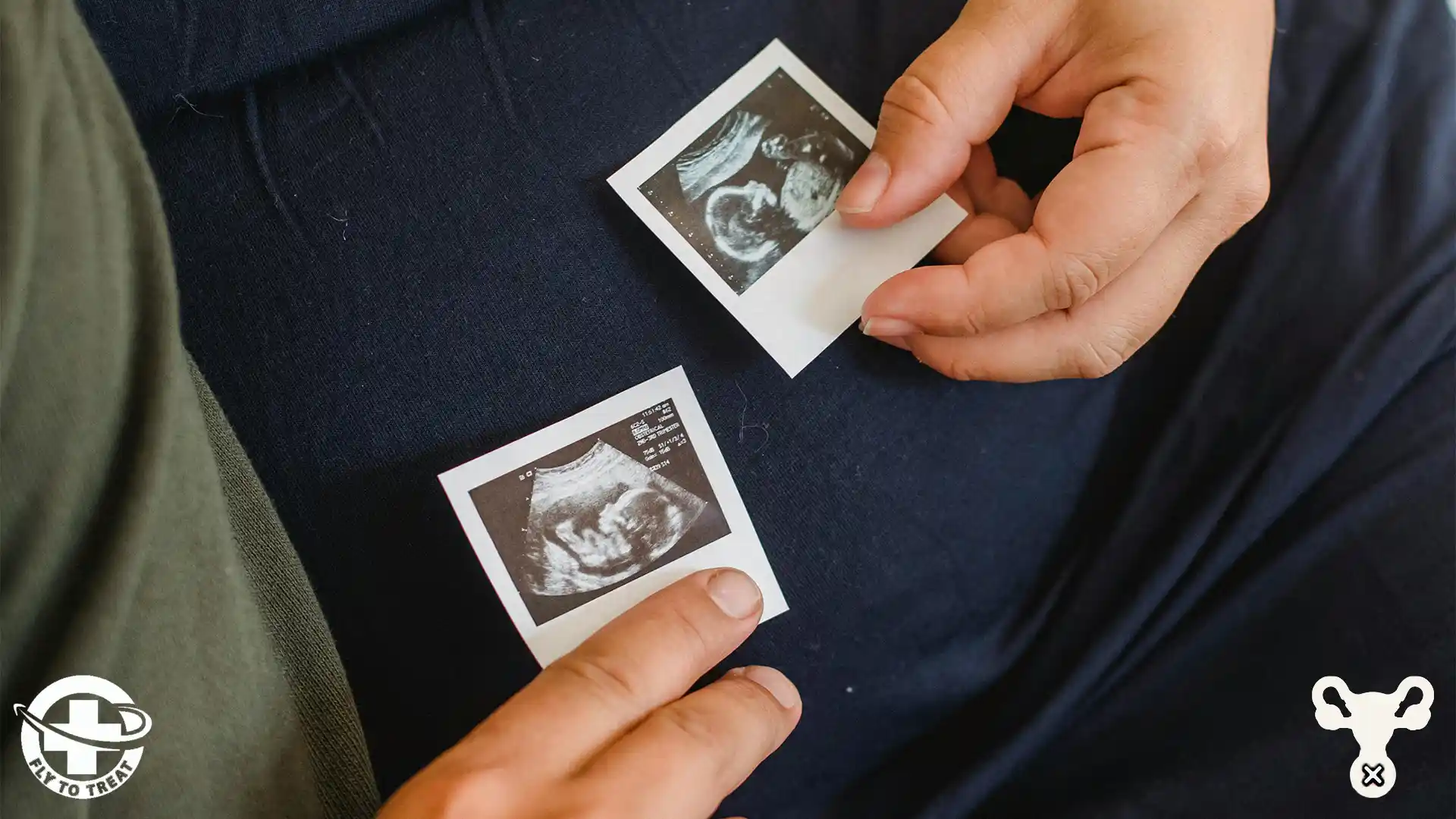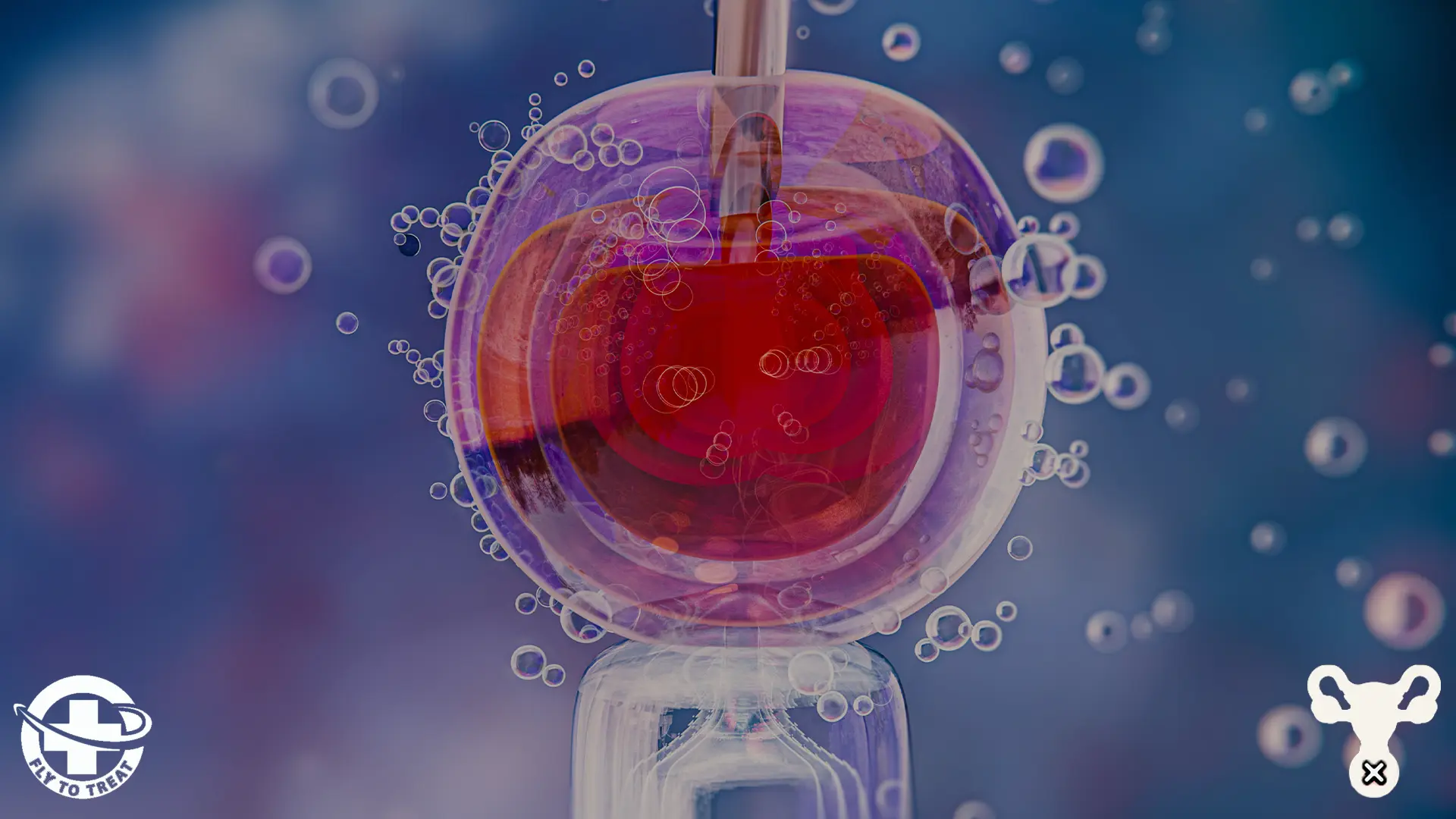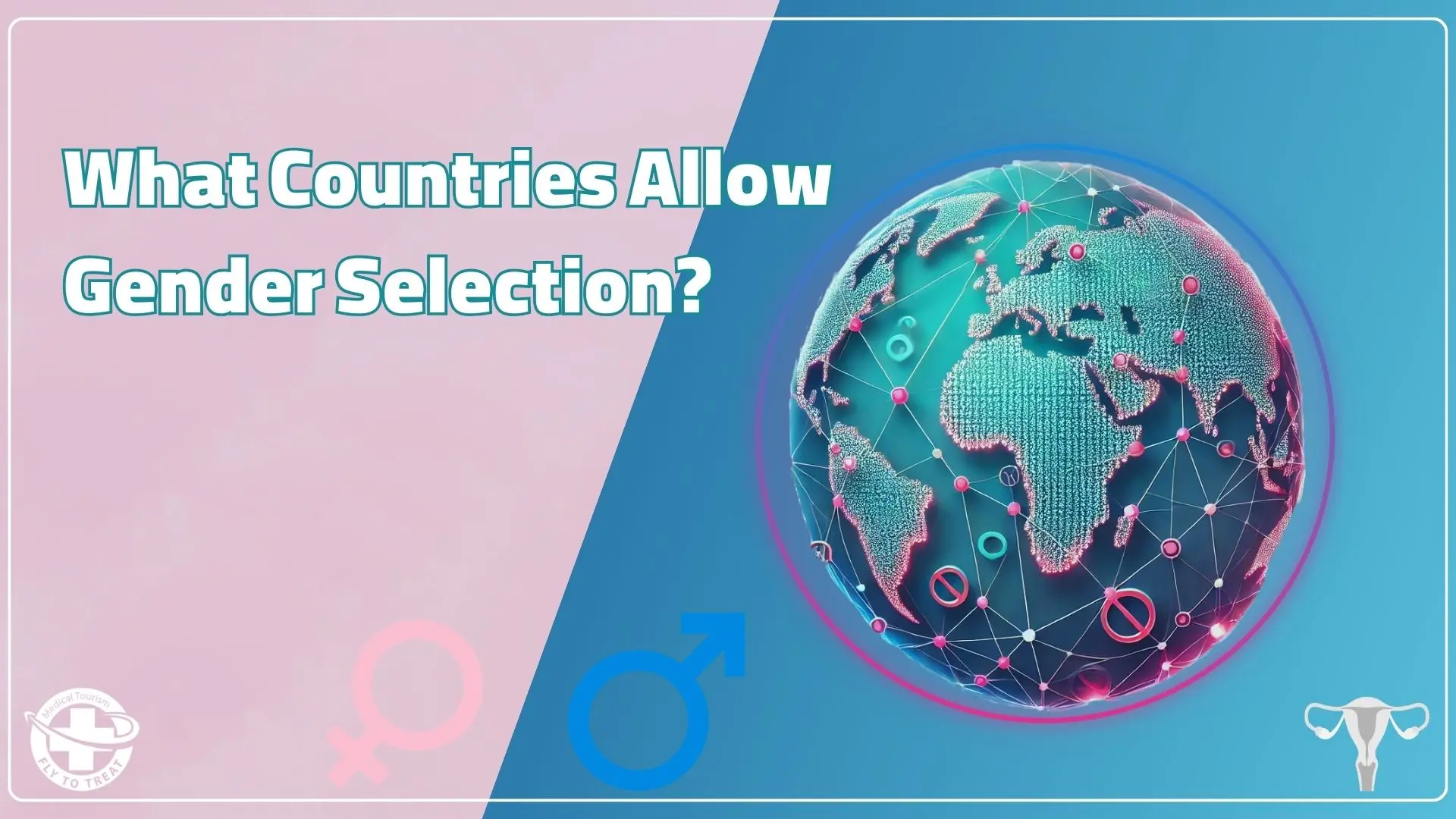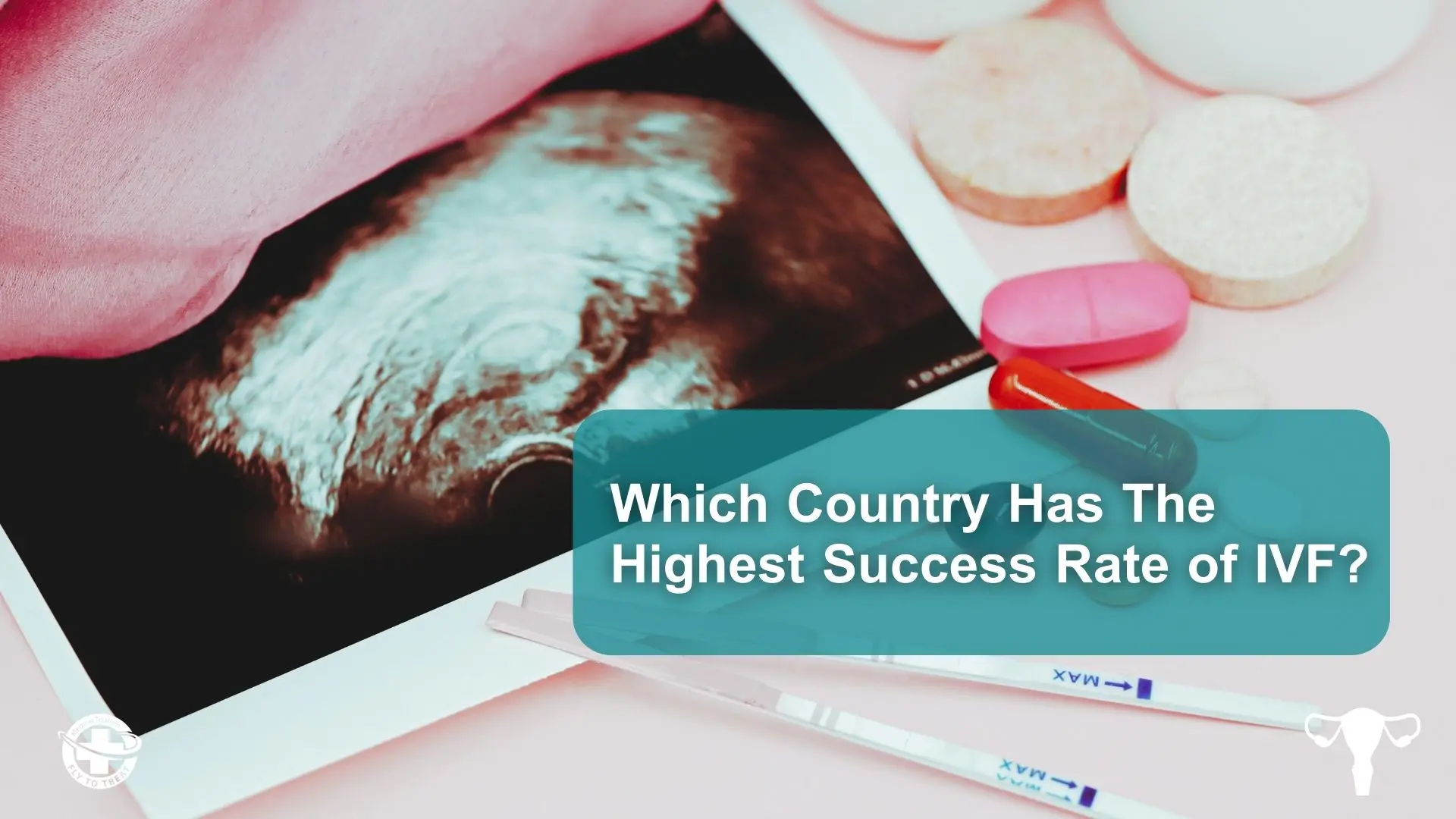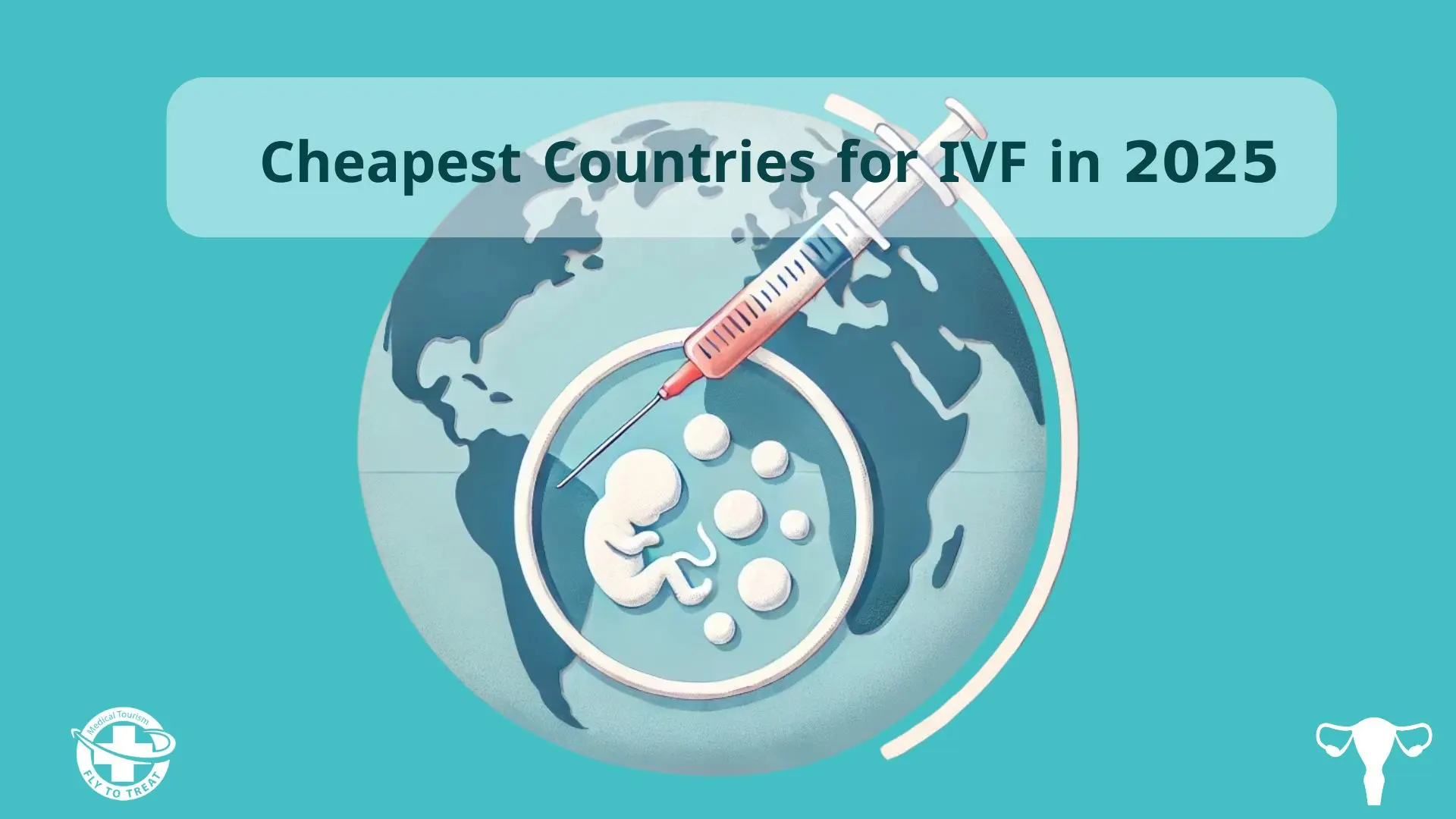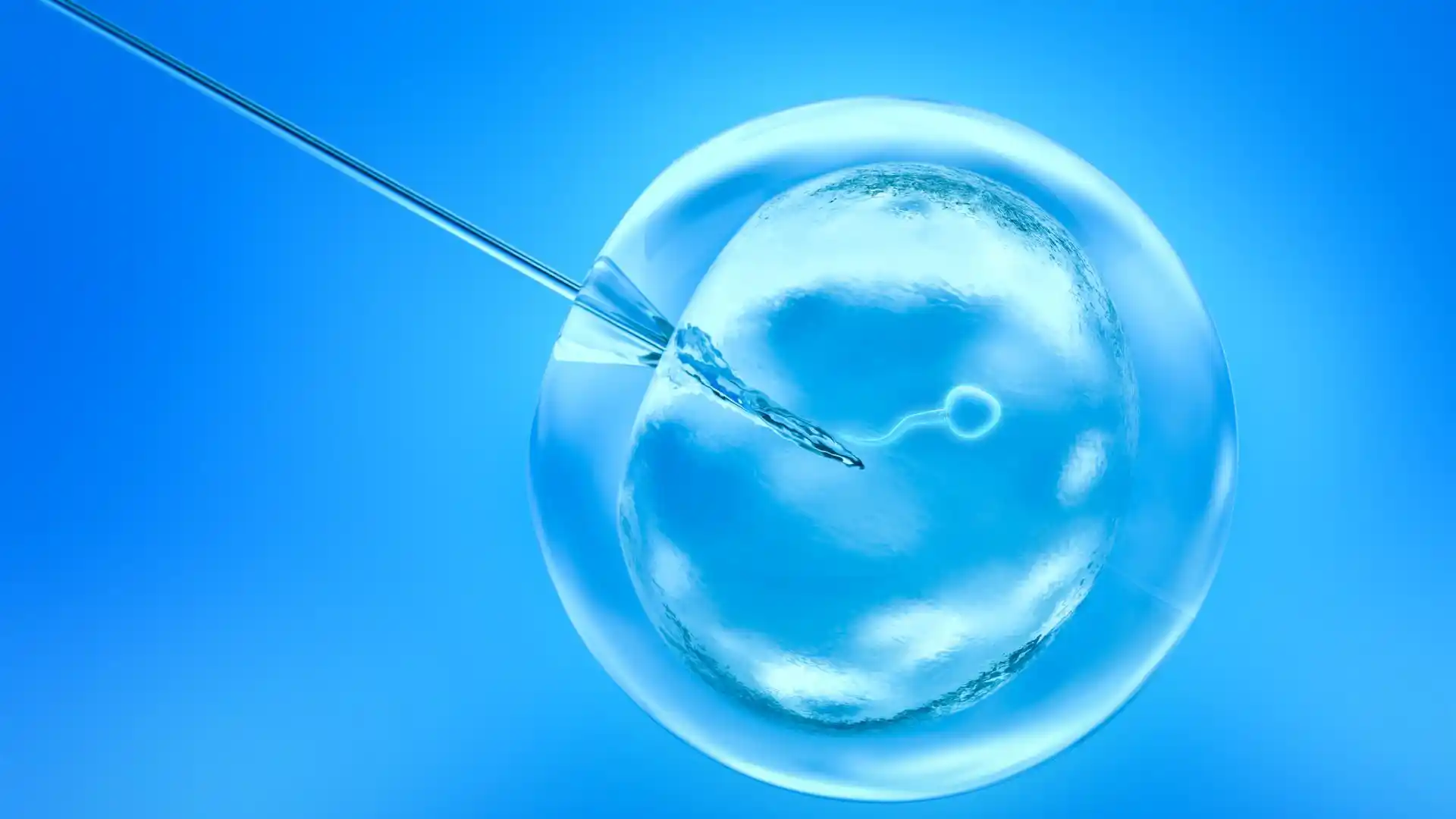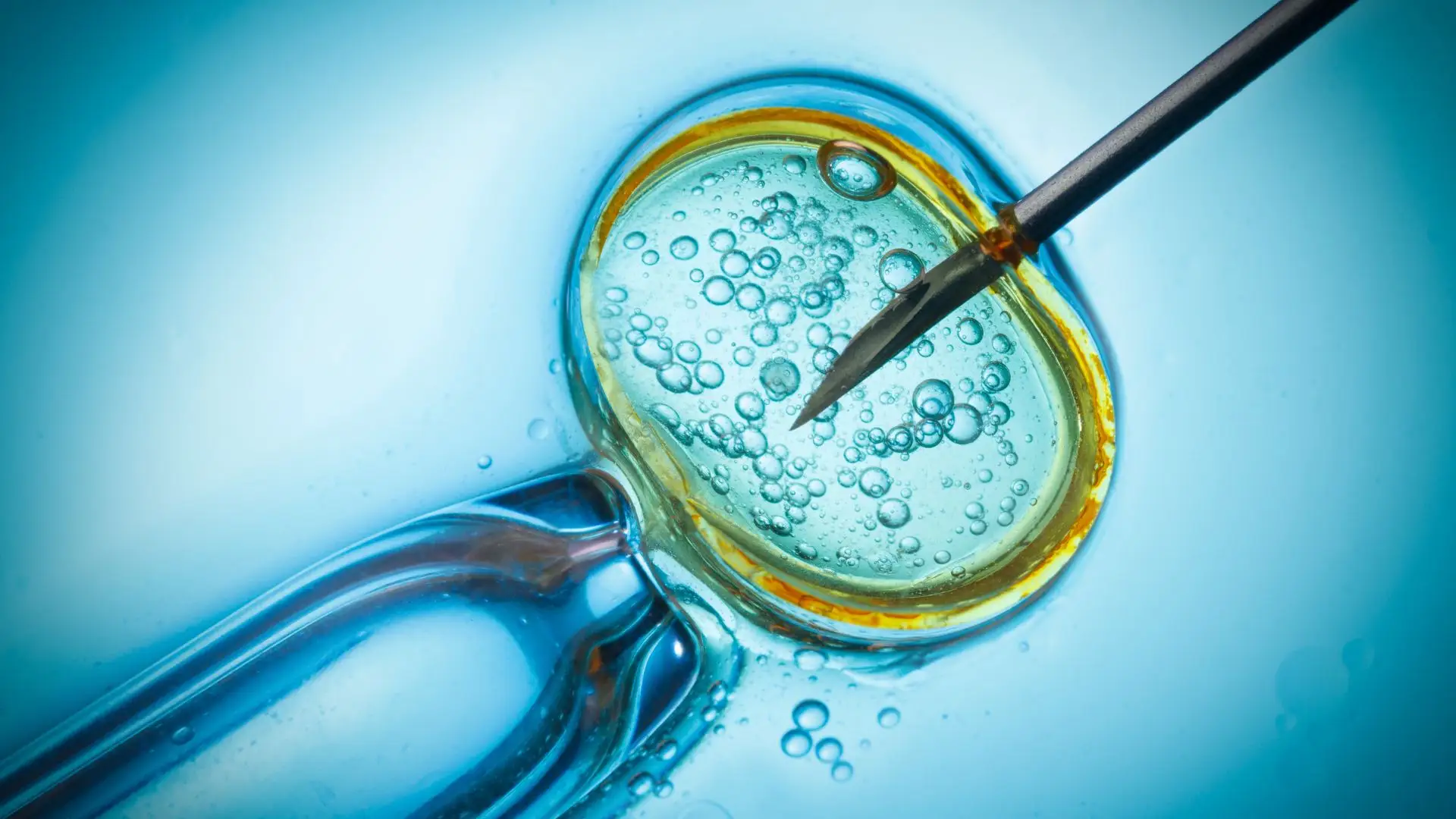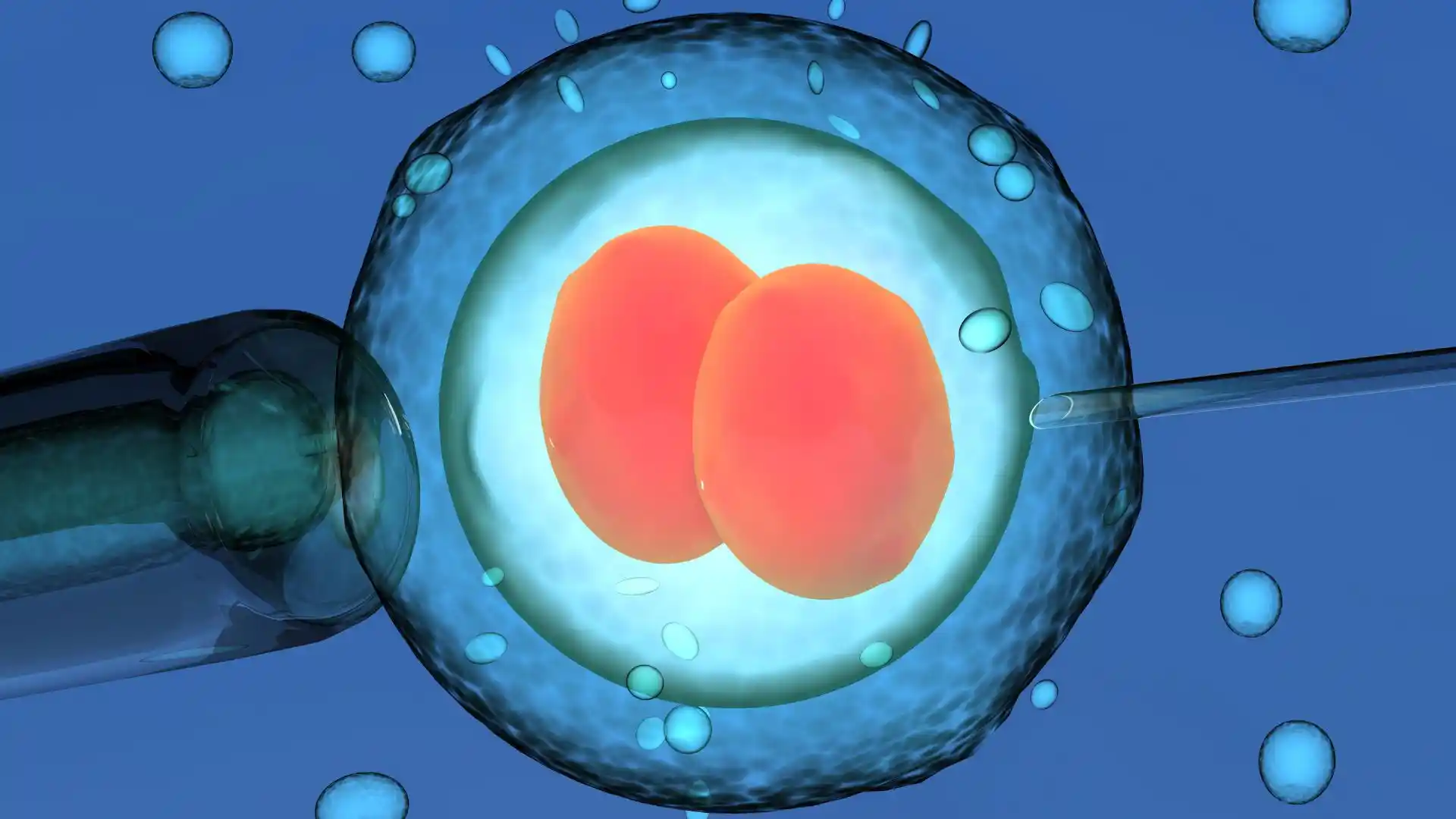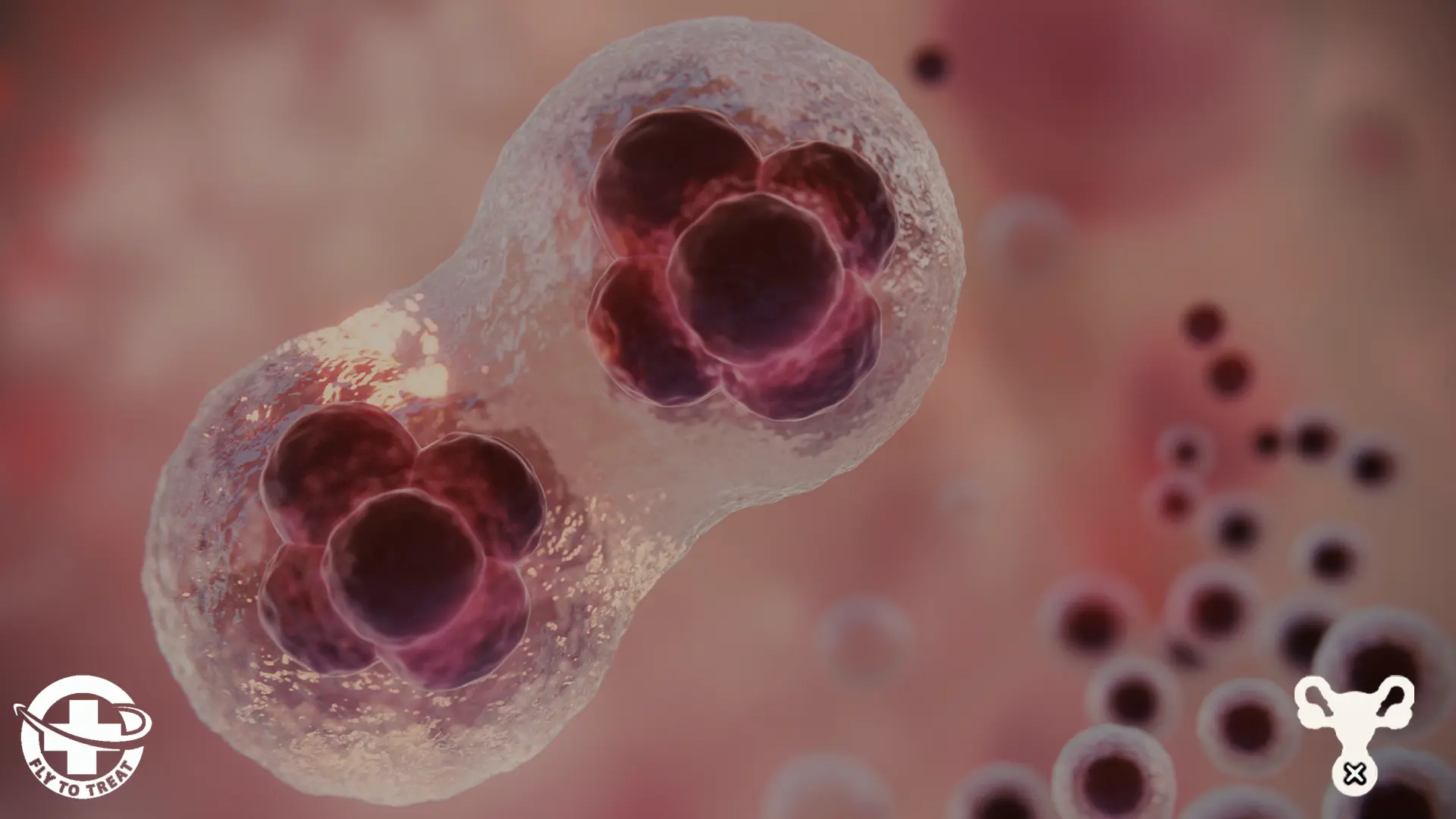
What is the process of IVF step by step?
Understanding the IVF step by step process is crucial for anyone considering in vitro fertilization. At FlyToTreat, we guide you through this journey, providing detailed insights into each phase of the IVF procedure. This article answers critical questions such as "Which cycle of IVF is most successful?" and "What is the most important stage of IVF?" We aim to demystify the process of IVF step by step and timeline and help you navigate this complex but potentially rewarding path to parenthood.
Table of Contents
IVF step by step process
The IVF procedure is a highly detailed process that can increase the chances of pregnancy for those facing fertility issues. While the exact IVF protocols may vary between countries due to regulatory, cultural, and healthcare differences, the core steps generally remain the same. Understanding how IVF is performed and the IVF process timeline can provide clarity and help manage expectations.
Step 1: Ovarian Stimulation The IVF step-by-step process begins with ovarian stimulation, where synthetic hormones are used to encourage the production of multiple eggs. This is crucial because only a portion of the eggs retrieved will be viable for fertilization. During this stage, various medications are prescribed, such as those for stimulating ovarian activity, maturing oocytes, and preventing premature ovulation. Throughout this period, frequent monitoring through blood tests and ultrasounds is necessary to track the response to these medications and determine the optimal time for egg retrieval.
Step 2: Egg Retrieval Egg retrieval is typically performed 34 to 36 hours after the final hormone injection. This minor surgical procedure involves using a thin needle guided by ultrasound to aspirate the eggs from the follicles. The process is done under light anesthesia to minimize discomfort. After retrieval, the eggs are immediately placed in a culture medium in preparation for fertilization.
Step 3: Sperm Retrieval On the same day as the egg retrieval, a semen sample is provided. In some cases, this is done naturally, while in others, additional techniques like testicular aspiration may be required. The sperm is then processed and prepared for fertilization. Donor sperm is also an option in certain situations.
Step 4: Fertilization The fertilization process follows the retrieval of eggs and sperm. Two primary methods are used: conventional insemination, where eggs and sperm are combined in a lab dish, or Intracytoplasmic Sperm Injection (ICSI), where a single sperm is injected directly into an egg. The fertilized eggs, now embryos, are cultured for a few days as they develop.
Step 5: Embryo Transfer The final step in the IVF process is embryo transfer, which usually occurs 2 to 5 days after egg retrieval. The best-quality embryos are selected and transferred into the uterus using a catheter. This procedure is relatively simple and typically involves mild sedation. If successful, the embryo implants into the uterine lining within 6 to 10 days, leading to pregnancy.
How does family balancing work?
You can read about IVF in Iran, IVF in Ukraine, IVF in India, and IVF in Turkey by clicking on each link How is IVF with Embryo donation to the infertile couples in Iran?
How is IVF with Embryo donation to the infertile couples in Iran?
IVF Process Timeline
The IVF process timeline typically spans around six weeks from the start of ovarian stimulation to the pregnancy test. The IVF procedure begins with hormone injections for about two weeks to stimulate egg production. After the eggs have matured, they are taken from the body and fertilized in a laboratory. The embryos are cultured for 3 to 5 days before being transferred to the uterus. A pregnancy test is conducted approximately two weeks after the transfer to confirm success. Understanding these IVF process steps helps in anticipating the journey ahead.
Why IVF fails?
IVF failure can occur for various reasons, impacting the overall success of the IVF procedure. Key questions about IVF failure are as follows:
• How does Embryo Quality affect IVF success? Poor embryo quality is a significant reason for IVF failure. Only some embryos have the potential to develop into a healthy pregnancy. IVF with Embryo donation in Iran is a good alternative for couples.
• Does the Age of the Woman affect IVF success? As a woman ages, the quality and quantity of her eggs diminish, reducing the chances of successful fertilization and implantation. what is egg donation process?
• What Uterine Issues can fail the IVF? Problems such as fibroids, polyps, or a thin uterine lining can prevent the embryo from implanting successfully.
• What Male Infertility Factors can fail IVF? Low sperm count or poor sperm motility can affect fertilization and embryo quality.
• Does Genetic Abnormalities affect IVF success? Chromosomal abnormalities in embryos can lead to implantation failure or early miscarriage. IVF with PGD process will help in this situation
Understanding the IVF process steps and the potential reasons for failure helps manage expectations and plan subsequent IVF procedures effectively.
What is the most important stage of IVF?
The most important stage of the IVF procedure is the embryo transfer. This critical step involves placing the fertilized embryo into the woman's uterus. Ensuring optimal conditions during this stage is vital for the embryo's implantation and development. Success can be influenced by the embryo's quality and the uterine lining's receptivity. Proper handling and timing during the embryo transfer significantly impact the overall success of the IVF process steps and determine whether the pregnancy is achieved.
Which IVF cycle is most successful?
Determining which IVF cycle is most successful can be complex, as success rates vary based on several factors. Generally, younger women, particularly those under 35, have the highest success rates. The first IVF cycle has a reasonable chance of success. Still, subsequent cycles can improve the odds as doctors fine-tune the IVF procedure based on previous attempts. Some studies suggest that success rates may increase significantly by the third or fourth cycle. Factors such as the quality of embryos, the health of the uterus, and the couple's overall health also play crucial roles. Thus, while the first cycle may offer hope, persistence through multiple cycles often leads to better outcomes in the IVF process steps.
Highlighting the importance of personalized treatment, a tailored approach considering individual circumstances enhances the likelihood of success in the IVF process timeline. The journey through each cycle provides valuable insights, improving the odds with each step of the IVF procedure.
Who is IVF recommended for?
IVF is recommended for individuals and couples facing specific fertility challenges. The primary candidates include women with blocked or damaged fallopian tubes, making natural conception difficult. It is also advised for women with ovulation disorders, premature ovarian failure, or endometriosis. Men with low sperm count or motility issues may also benefit from IVF procedures. Couples who have been trying to conceive for over a year without success or who have experienced multiple miscarriages might consider IVF. Additionally, IVF is recommended for those with unexplained infertility after other treatments have failed.
• IVF procedure helps women with ovulation disorders, fallopian tube damage, or endometriosis.
• Men with low sperm count or motility issues are good candidates.
• Couples facing unexplained infertility or multiple miscarriages can consider IVF.
• Those who have not succeeded with other fertility treatments may find IVF beneficial.
Understanding how IVF is performed and the IVF process timeline can guide candidates through this complex but potentially rewarding path.
What IVF medications are used?
IVF involves a variety of medications to enhance the chances of a successful pregnancy. Stimulation medications, like Gonadotropins, stimulate the ovaries to produce multiple eggs. These include drugs like Follitropin and Menotropin. Antagonists, such as Ganirelix, are used to prevent premature ovulation by blocking hormone signals. Before egg retrieval, a trigger shot, like Human Chorionic Gonadotropin (hCG), is administered to mature the eggs. Additionally, Progesterone is often prescribed after egg retrieval to prepare the uterine lining for implantation.
• Stimulation medications include Gonadotropins, which help produce multiple eggs.
• Antagonists like Ganirelix prevent premature ovulation.
• A trigger shot of hCG is used to mature the eggs before retrieval.
• Progesterone supports the uterine lining for implantation after egg retrieval.
These medications are essential for the IVF step by step process, ensuring each phase, from egg stimulation to implantation, is optimally supported, thus increasing the chances of a successful IVF procedure.
IVF how much does it cost؟
The cost of IVF can vary significantly based on multiple factors. Understanding these factors can help prospective parents budget for the IVF step by step process. The primary considerations include:
• Location: The country and city where the IVF procedure is performed can significantly affect the cost.
• Clinic reputation: High-demand clinics with a track record of success often charge more.
• Medication costs: The type and quantity of medications needed during the IVF process steps can add to the overall expense.
• Additional procedures: Procedures like ICSI, genetic testing, or embryo freezing can increase costs.
• Insurance coverage: The extent of insurance coverage for fertility treatments can reduce out-of-pocket expenses.
• Number of cycles: The need for multiple IVF cycles can multiply the cost.
Each step, from medication to additional procedures, is crucial to the overall expense, impacting how the IVF procedure works and its financial demands. You can check our packages page to explore the exact prices in each country and compare their services.
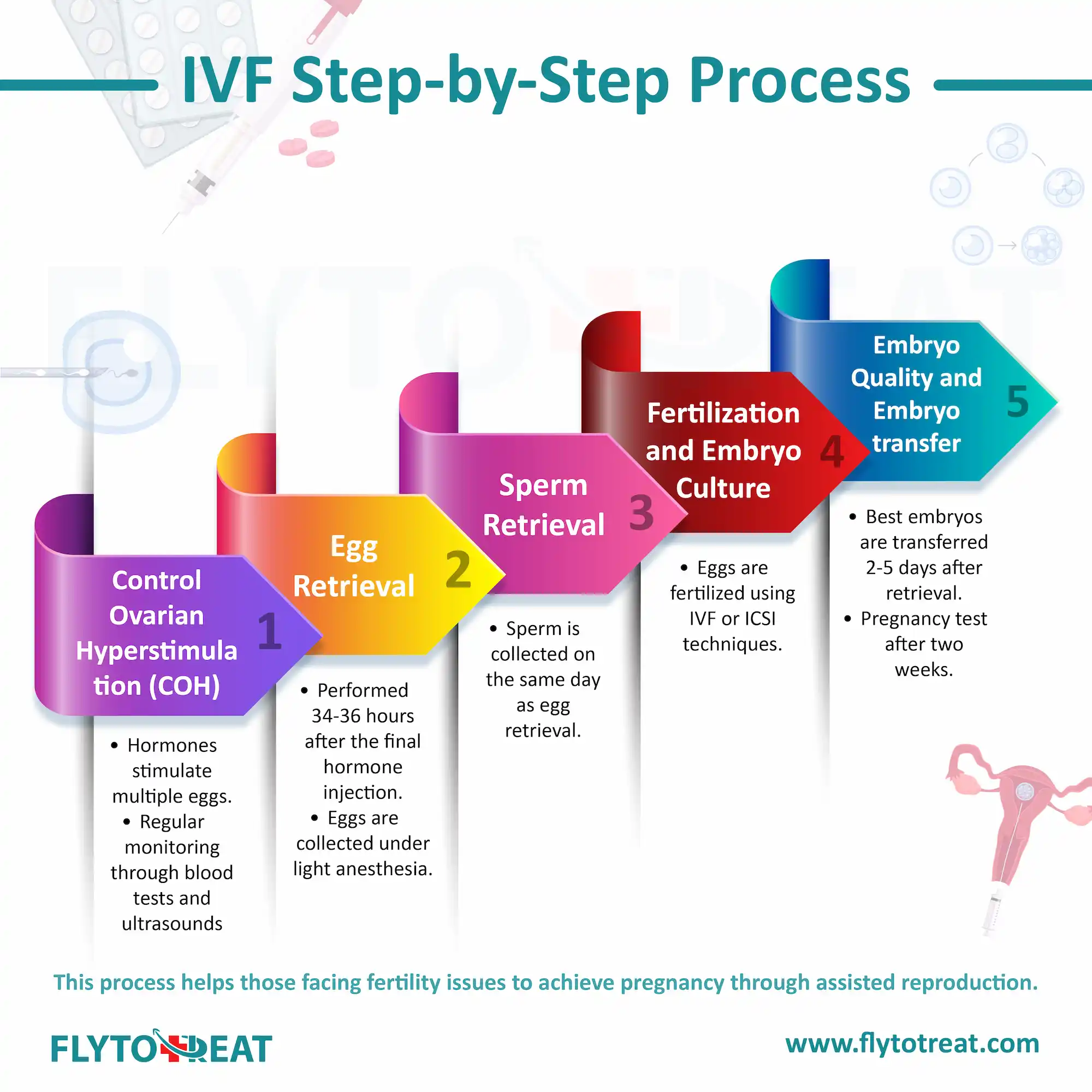
Where is IVF performed?
In vitro fertilization (IVF) is a complex procedure carried out in specialized fertility clinics and hospitals. The term "in vitro" means "in the lab," highlighting the laboratory's crucial role in the IVF process. The initial consultation and testing often occur in a clinical setting, where doctors evaluate the patient's health and fertility. Hormone stimulation, part of the IVF process timeline, is typically managed in the clinic with regular monitoring through blood tests and ultrasounds.
During egg retrieval, a surgical procedure is performed in a sterile environment, often under mild sedation. The collected eggs are then fertilized with sperm in the laboratory, where embryologists closely monitor the development of embryos. Finally, the embryo transfer is done in a clinical setting, where the developed embryos are placed back into the woman's uterus.
Understanding how IVF is performed in these different settings is essential for comprehending the IVF step by step process and ensuring each stage is completed successfully.
|
Stage |
Location |
|
Consultation & Testing |
Clinic |
|
Hormone Stimulation |
Clinic |
|
Egg Retrieval |
Surgical Suite |
|
Fertilization |
Laboratory |
|
Embryo Transfer |
Clinic |
Conclusion
IVF is a multifaceted procedure with several critical steps, each contributing to the overall success of the treatment. From understanding why IVF fails to identify the most crucial stage and knowing who it is recommended for, this article provides comprehensive insights into the IVF process steps. FlyToTreat supports you through every phase, ensuring you have the information and resources for a successful IVF journey. By understanding how IVF is performed, you can approach the process more confidently and quickly.
MEDICALLY REVIEWED BY: Dr. Ali Bazazi
AUTHOR: FlytoTreat's team of Authors
14 August 2024 - Updated At: 02 March 2025
Related Articles
Related Services
Comment





